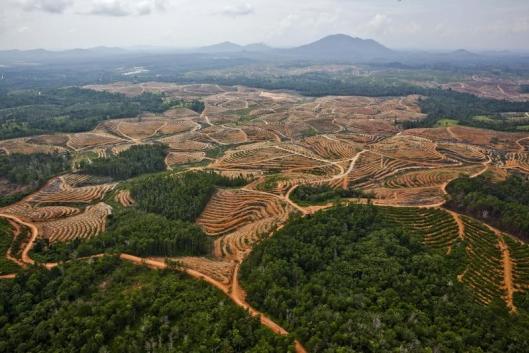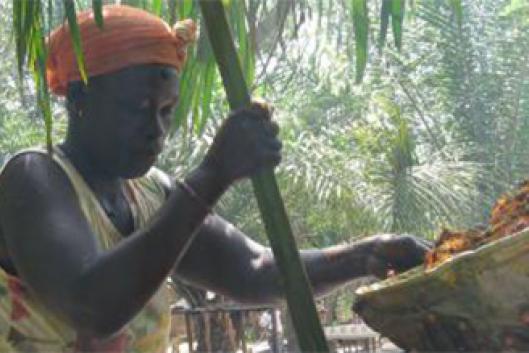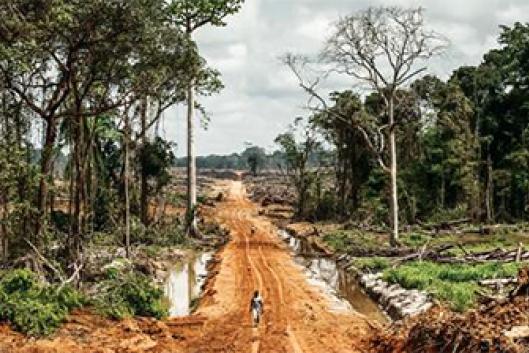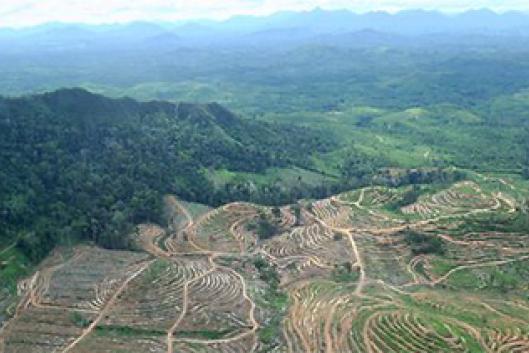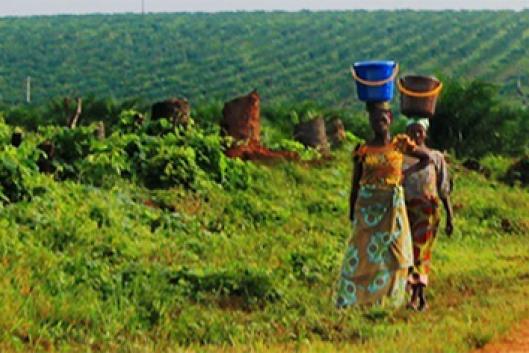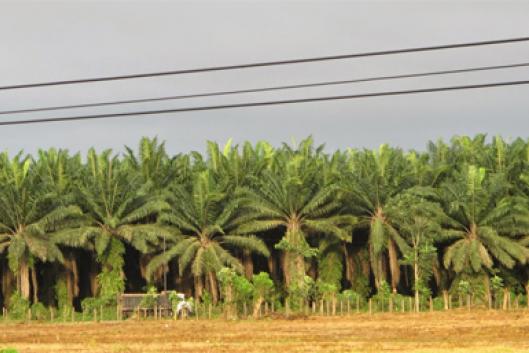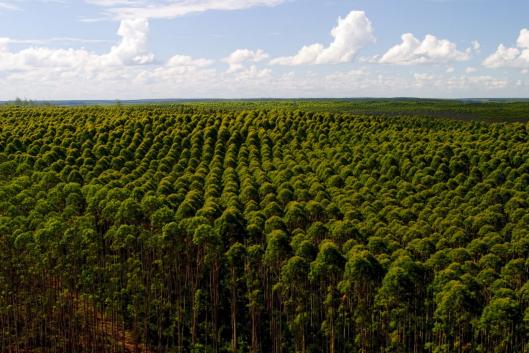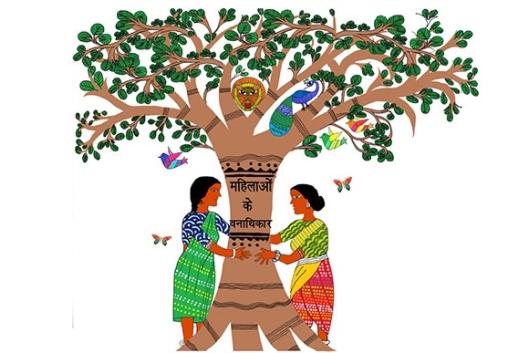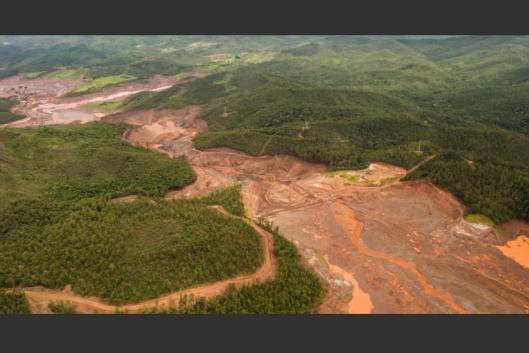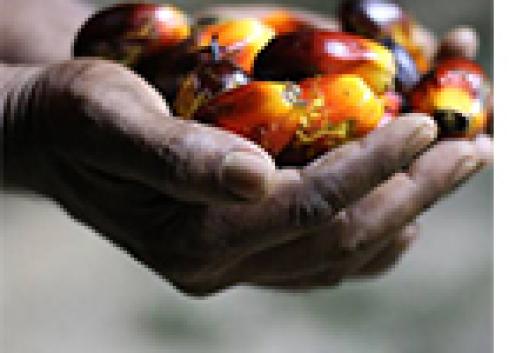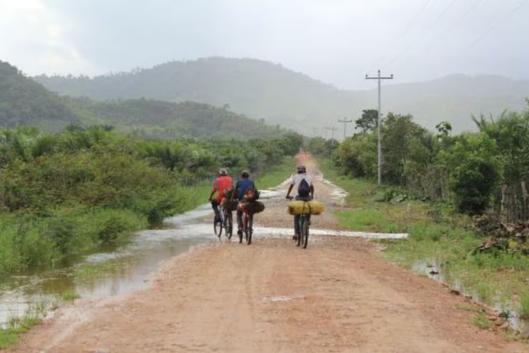To mark the International Day of the Struggle against Monoculture Tree Plantations on September 21, WRM, together with organizations and networks from around the world, this year issued a declaration condemning the expansion of the industrial oil palm plantation model. The expansion of this model is leading to a growing number of economic, social, cultural and environmental impacts. Once again, aspiring to break the circle of silence around the violations faced by the communities whose territories are invaded and surrounded by these monocultures, we shout loud and clear: Plantations are not forests!
Bulletin Issue 218 – September 2015
The advance of industrial oil palm monoculture: destruction and resistance struggles
WRM Bulletin
218
September 2015
OUR VIEWPOINT
THE ADVANCE OF INDUSTRIAL OIL PALM MONOCULTURE: DESTRUCTION AND RESISTANCE STRUGGLES
-
-
15 October 2015“The world’s forests remain under threat from illegal logging… Illegal logging perpetuates corruption, undermines livelihoods, fuels social conflict, deprives governments of revenue and erodes countries’ natural resource bases.” Chatham House Report, July 2015 (1)
-
15 October 2015Interview with Jean-François Mombia on oil palm plantations Could you tell us what is the RIAO-RDC (Information and Support Network for national NGOs-Democratic Republic of Congo) and what are its main activities? RIAO is an information and support network for NGOs in the Democratic Republic of Congo (DRC). It is an organization of social assistance and protection. We work hand in hand with communities to protect their rights. We also work closely with NGOs. We deal with issues that are important to the life of communities, and the protection of forest ecosystems. We also deal with micro-credits at the community level in order to help the people.
-
-
PEOPLES IN ACTION
-
15 October 2015On September 21, about 300 indigenous peoples occupied the Nedila property in the municipality of Prado Bahia, Brazil, where the Suzano Company has a eucalyptus monoculture plantation. The main demand of the indigenous peoples is the immediate closure of the plantation, which is already causing great environmental destruction. The plantation is still not fully developed, but it is already showing its harmful effects on humans as well as on fauna and flora. The dams are causing rivers and water sources to dry out, and huge machinery incessantly mows down the Atlantic Forest.
-
15 October 2015After two years of blocking all work on the proposed Baram Dam in Sarawak, Malaysia, the indigenous peoples have scored a major victory: the state government has announced a moratorium on the controversial dam and an evaluation of small-scale energy alternatives. The indigenous peoples of Baram however are still concerned due to the status of their native lands which are already gazetted for construction of the dam, and of the on-going logging activities carried out with valid permits. See the press release here: http://bmf.ch/en/news/victory-moratorium- on-the-baram-dam-in-malaysia
-
15 October 2015A Press Release by All India Forum of Forest Movements (AIFFM) denounces the Government of India allowing “forest concessions” to private sector companies in what it perceives as state-owned forests. Forty per cent of the “identified” degraded forests could be given away on lease to private companies for raising plantations, violating not one but several statutes such as the Forest Rights Act or the Indian Forest Act. They also highlight a recent announcement by the Government of a US$15 billion package for new plantations.
-
15 October 2015The Global Coalition Against REDD in alliance with the No REDD in Africa Network (NRAN) and supported by many international organizations launched a Declaration at the Civil Society Alternative Programme to the World Forestry Congress, which was held in Durban, South Africa, in early September. The Declaration states “to reject top-down forms of development, including false solutions to climate change and forest and biodiversity conservation that only serve the dominant market economy” and demands governments, the United Nations and financial institutions “to stop the disastrous REDD+ experiment and finally start addressing the underlying causes of forest loss and climate change!”
-
15 October 2015On August 25, 2015, employees of the Fibria Company in Tres Lagunas, Mato Grosso do Sul, made public the recent layoffs made by the company - one of the largest pulp producers in Brazil. “In the last few weeks alone there were almost 18 layoffs. And the worst is that some workers with occupational diseases were also dismissed.” The dismissals are thought to be a retaliation due to workers’ mobilization surrounding the creation of a new union organisation. The workers considered the foundation of the Forestry Worker Union in early September 2015 as essential to confront a company that makes employees work long hours with low wages.
-
15 October 2015Rivers Coalition in Cambodia (RCC) together with national and international organizations, insist to immediately stop all activities related to the construction of the Don Sahong Dam after the concession agreement was officially approved earlier this September in a unilateral decision by the Government of Laos. A joint statement denounces that “the concession agreement was made while the requests made by the Governments, communities of the lower Mekong and civil societies of the three countries members of Mekong River Commission (Cambodia, Vietnam, and Thailand) have yet to be meaningfully responded to and/or resolved”.
RECOMMENDED
-
15 October 2015Malaysian palm oil industry, which produces 40 per cent of the world’s palm oil supply, is growing but, according to labourers and activists interviewed by a Wall Street Journal report, also surrounded with abuses. Migrant workers, especially from Bangladesh and Myanmar, are being brought in terrible conditions by human traffickers as labourers in certain palm oil plantations in Malaysia. Felda Global Ventures, which sells crude palm oil to multinationals such as Cargill Inc., Nestlé SA and Procter & Gamble Co, says that 85 per cent of workers in its plantations are foreigners. Even those with legal work permits complain that they earn less than Malaysian minimal wage and are treated poorly.
-
15 October 2015An article from the recently launched book “Gender and Land Tenure in the context of Disaster in Asia”, examines the impact of changing land use and land tenure systems in Sarawak on human rights, livelihoods, and local gender practices. The article studies the Iban community of Kampong Lebor whose customary lands were cleared by companies to establish oil palm plantations.
-
15 October 2015In 2013, the Rapporteur on human rights to the environment (RDHMA, for its Portuguese acronym), from the DhESCA Platform, conducted a Research and Advocacy Mission in the state of Acre on the green economy problematic and its political and territorial effects. Different state governments, especially in the Amazon, have already established or are in the process of defining state policies contemplating proposals for payments for environmental services and REDD+. Acre is one of the pioneers.
-
15 October 2015An article in the newspaper "El País" shows the intense violence experienced by the people of the valley of Bajo Aguán, in Honduras, who are struggling to regain land that was captured long ago by Dinant Corporation for its vast palm oil plantations. The conflict has attracted worldwide attention partly because the company had the backing of the International Finance Corporation (IFC), the commercial sector arm of the World Bank which grants loans to private companies. The IFC provided support to Dinant while clashes took place on the ground.
